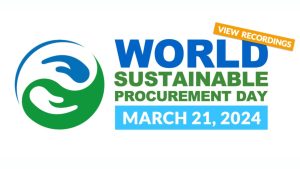Making progress on society’s biggest problems requires governments to make better use of data, involve citizens and collaborate with other sectors.
Procurement is constantly under threat. We always fight for recognition and access to full business spend. And, at the very time when we achieve acknowledgement for our contribution and procurement is widely understood, our function becomes a target.
For decades we have provided supply chain transformation projects, led group-wide savings programmes as well as developed risk and budget control policies and governance.
Yet, unlike other shared-service functions who are accepted as core business functions, we are tolerated as long as we deliver new benefits, yet challenged on our business results and KPIs. Our budgets become leaner with never-enough resources to achieve our goals. Once our skills are understood by the business, it wants to commoditise and outsource them to a systems-led provider or an inexperienced team of ‘worker bees’.
Therefore, with this background of change and uncertainty, it is good to reflect upon and be upbeat about where strategic procurement leaders can contribute to society and to business, writes Stephen Wills (FCIPS, MBA), international senior procurement and supply chain expert, and former CPO in public and private business sectors (UK), in this month’s SmartProcurement.
Our scope must be ambitious. We cannot restrict ourselves to category or contract management. We will need to develop new relationship skills. Procurement oscillates between forcing an agenda and having an agenda forced upon us. Such has been our role in corporate social responsibility (CSR) and general data protection regulation (GDPR). The big opportunity still sits on the shelf. The Public Services (Social Value) Act of 2012 (UK) gives us our roadmap. Yet, some of us have been reluctant to run with it.
Some do the minimum. Others couch the requirements in specifications with loose wording such as “best endeavours”. We have the power to do more than line the pockets of vendors and save some cost for our companies along the way.
We can make a difference to society and be recognised business leaders in the process. Suppliers have goals and missions. Just like us they want to maximise profit. We can, therefore, adopt the role of a visionary and philanthropist. In our definition of requirements, we can stretch our needs beyond a budget holder’s requirements to include what the business wants and what society needs. I still hear the response from procurement that they are here to do what stakeholders tell them to do. In doing so, we are limiting our voice and our potential.
The triple bottom line gives us permission to go beyond profit and to contribute to people and to our planet. This can include apprenticeships, the environment and public health. In general, how can we assist the more vulnerable and at risk in society?
Sometimes we cannot always see how we can assist in the big picture, such as to save the rain forest or combat pollution. Yet, in our society and within our scope we can make a contribution. Plastic contamination is an issue that our supply chains can help with as well as how we reduce emissions in our fleet of vehicles.
A case study that I was involved in happened when the Social Value Act came into force. It was the London Olympic Games: this overlaid sustainability, diversity and legacy across project management. It ensured that solid governance delivered a broader criteria of results – more than a controlled way to spend tax payers’ money. It was a value-for-money project.
It delivered a legacy for a deprived area in east London with refurbished estates, such as schools, stadiums, accommodation, roads and public transport. It brought people together to deliver a common purpose, bringing pride and self-esteem.
These included disadvantaged and vulnerable individuals, not just from the local area but from across the country. It generated income and met the project management rules of being delivered to scope, to quality, on time, safely and to budget. The end-product was two well-run games that showcased athletics and sportsmanship at its best. This also included showcasing the best of the UK in the opening ceremony.
The final result was not only the 2012 Olympic Games but also the best-attended Paralympic Games that highlighted the abilities of the disadvantaged and partially able.


























